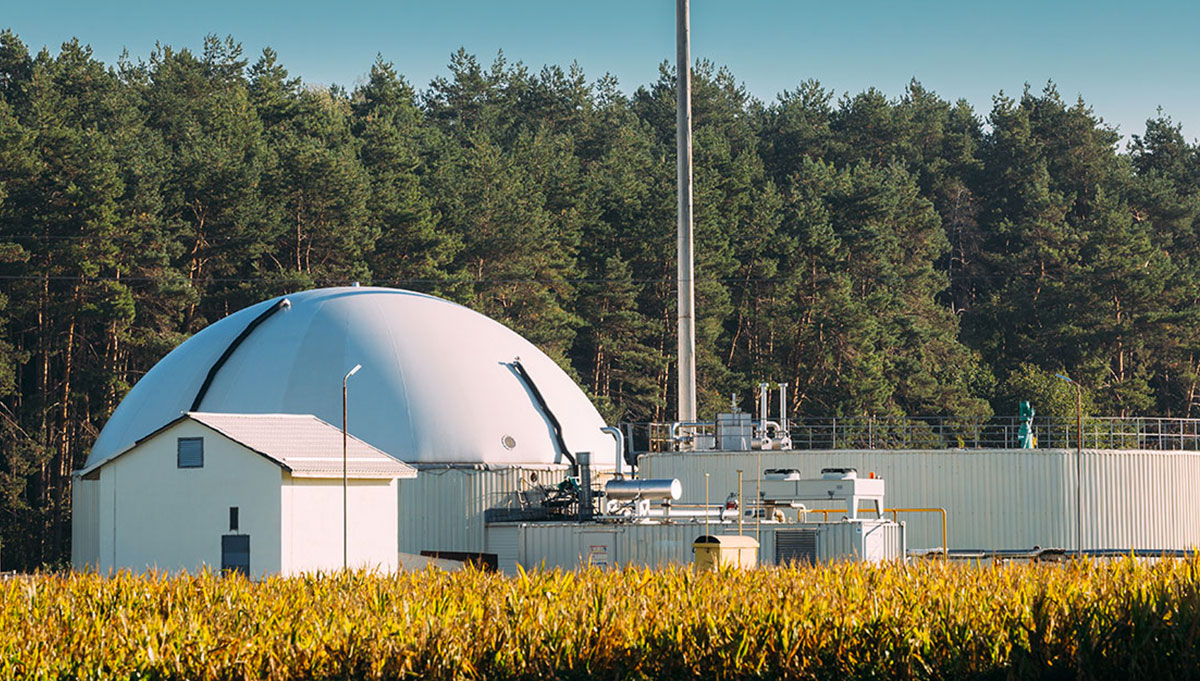In recent years, biogas has become one of the most widely used alternative sources by companies for renewable energy production.
Biogas is the result of a fermentation process involving organic substances of animal or plant origin, carried out by numerous bacteria in the complete absence of oxygen and under controlled temperature conditions. This process is known as anaerobic digestion.
The product of this digestion and degradation process is a mixture composed of methane (CH4), carbon dioxide (CO2), and other substances in smaller proportions, such as carbon monoxide, nitrogen, hydrogen, and hydrogen sulfide.
This substance has a high calorific value and can be converted into electricity and heat through a co-generator. In the context of climate change and environmental protection, biogas is often highlighted by international institutions as one of the primary renewable energy resources, capable of ensuring energy autonomy during the transition to a green economy.
Biogas and the role of flow meters
The entire process of biogas generation involves gas formation, purification, storage, and, finally, the use of biogas as a fuel source for heating or electricity production.
Measuring the flow rate of biogas at various points in the system provides operators with critical information about optimal gas production, control, safety, and reporting.
Using biogas presents several challenges in selecting the appropriate flow meter:
- Sensitivity to low flow during startup phases and seasonal changes that produce lower flow rates;
- Temperature compensation for accurate readings under variable temperatures;
- Calibration for a mixed gas composition of CH4+CO2+trace gases;
- Handling wet and dirty gas with corrosive H2S content;
- Operation in potentially flammable or explosive gas environments.
Key criteria for selecting flow meters
The essential criteria for selecting flow meters include:
- Measurement of mass flow, both instantaneous and total flow rates;
- No moving parts or small openings that could clog or become fouled in dirty or wet gas environments;
- Specific calibration for biogas;
- Sensitivity to low flow and a wide turndown ratio of 100:1;
- Pressure drop of less than 1 mBar;
- All wetted parts resistant to H2S corrosion, with at least 316L stainless steel;
- Easy and safe removal under line pressure using a simple ball valve.
The ST series thermal dispersion flow meters from FCI, available in both insertion and inline models, are optimal for biogas flow measurement.
In addition to meeting all the key selection criteria mentioned above, FCI employs a constant power measurement technique. This technique, thanks to a slight heating effect, effectively dries any condensation moisture on the sensor. This feature provides improved performance and repeatability in wet biogas measurement applications.
Wherever installation is required along the biogas plant, FCI has successfully deployed ST series gas flow meters.
For more information, visit the website.


